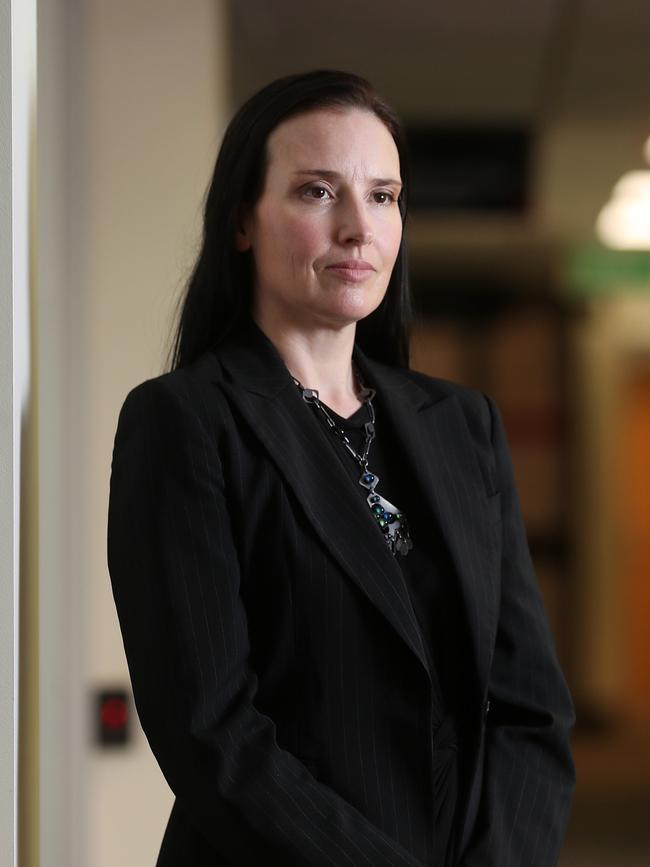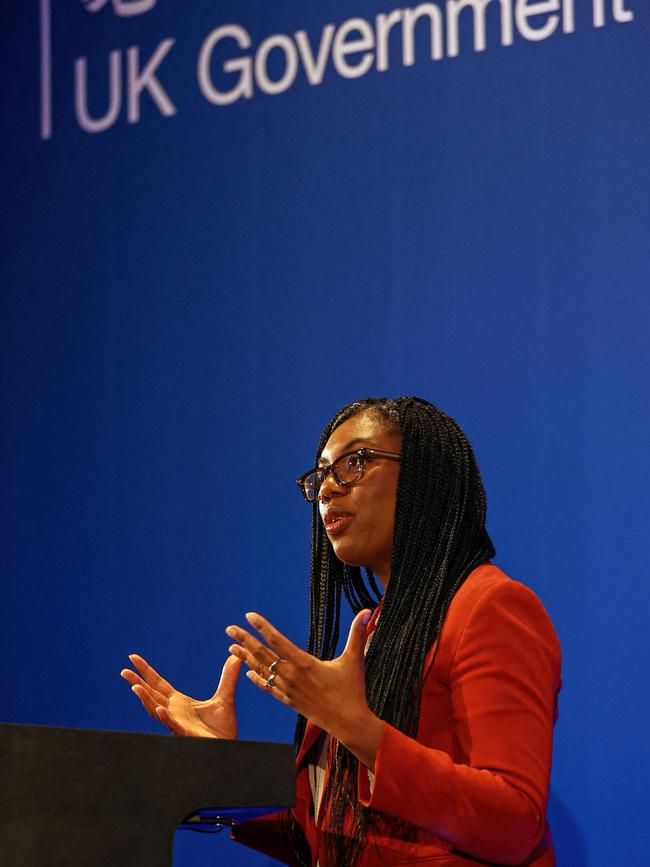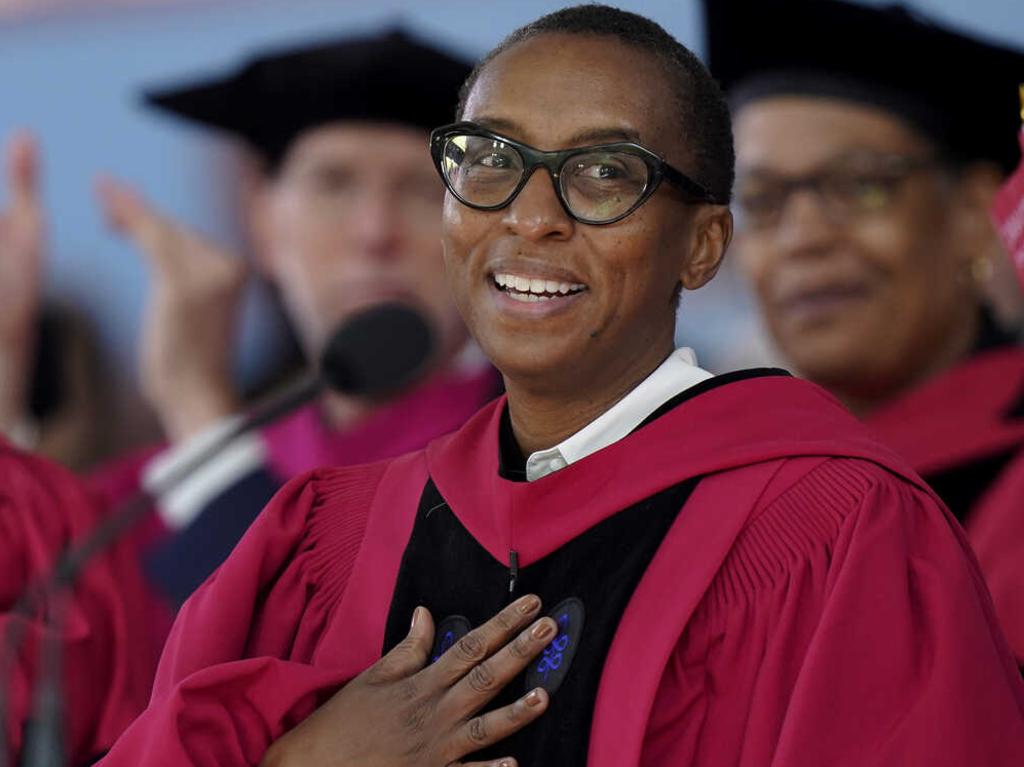
The idealistic rebels promising the animals at Manor Farm that they would be equal, happy and free had been overtaken by a new group of oppressors – the rebels. Its slogan was now “all animals are equal, but some animals are more equal than others”. The book ends with the pigs walking on their hind legs, carrying whips in their trotters, mimicking the original oppressors.
One night, the proletarian animals gather around a window watching a dinner party in the farmhouse between the pigs and the humans. “The creatures outside looked from pig to man, and from man to pig, and from pig to man again; but already it was impossible to say which was which.”
Orwell noted that as the years passed, the time inevitably arrived when, apart from a few older souls, no one remembered the days before the rebellion.
Orwell might have been writing about the obvious dangers of the new religion of Diversity, Equity and Inclusion. Two significant reports – one in Australia, the other in the UK – suggest the new DEI oppressors may be worse than the oppressors they want to replace.
Most relevant from an Australian viewpoint is the report, “Low Expectations: Are Universities Failing Aboriginal Academics”, by Samara McPhedran of Close the Gap Research, released on Wednesday.
This report compares the academic track records of senior Aboriginal and non-Aboriginal scholars at public Australian universities and asks the question: “Are senior Aboriginal and non-Aboriginal scholars judged by equivalent standards?”
The report’s title echoes Noel Pearson’s well-known denunciation of the “soft bigotry of low expectations”. Pearson has said that if the fight against racial discrimination was the most significant advance in the last half of the 20th century, then “the soft bigotry of low expectations must be the most important in the first half of” this century.
As Pearson explained in 2016: “This form of prejudice wreaks a massive toll on the marginalised and perpetuates a great social injustice. It is as bad and, I would say, even worse in its effects than its better-known counterpart.”

With that context, McPhedran’s report makes depressing reading. McPhedran, an honorary associate professor at the University of Queensland, compared 118 senior Aboriginal academics from 37 universities (at levels ranging from professor, to associate professor to principal research fellow) with a comparator non-Aboriginal group who as far as possible held positions at the same level, in the same disciplines and with the same distinctions.
She assessed the respective groups against a number of metrics, the most relevant of which were the highest level of qualification prior to senior appointment, the number of years from PhD to senior appointment, number of publications both pre- and post-senior appointment and the “h-index” (a measure of impact based on how often others cite an individual’s work).
The results were revealing. Only 3 per cent of the non-Aboriginal cohort did not have a PhD before senior appointment whereas 14 per cent of the Aboriginal group were appointed without a PhD. While the time from PhD to senior appointment had changed over time, from around 2015 onwards Aboriginal academics have had a consistently shorter time to senior appointment than non-Aboriginal academics.
Non-Aboriginal academics had markedly greater publication outputs than Aboriginal academics – the Aboriginal cohort had an average of 39 publications each whereas the comparator group each averaged 101 publications. Publication outputs for the non-Aboriginal group were also significantly higher than the Aboriginal group when broken down by pre- and post-senior appointment.

Measuring academic impact using the h-index also produced a consistent result – Aboriginal academics had an average h-index of 9 whereas the non-Aboriginal academics had an average h-index of 20.
McPhedran’s conclusions are explosive but not surprising given those results. She considers it apparent that many Aboriginal academics at senior level do not meet minimum expectations set by university enterprise agreements and internal policies and guidelines.
She says: “It is unclear how academics with limited track records and low impact could be deemed to meet” the requisite expectation of “national or international recognition of their scholarship” or be considered to “have attained a high level of achievement”, “made an outstanding contribution to their field, or be considered an eminent authority”.
McPhedran at minimum makes out a strong prima facie case that Aboriginal academics are judged by significantly different, and easier, standards than non-Aboriginal academics. This looks very much like Pearson’s soft bigotry of low expectations. If true, it is grossly unfair to students, undermines the credibility of our universities and, worst of all, it humiliates all Aboriginal academics.
If this is what the Queensland University of Technology intended to achieve when it announced last year that it was moving away from “the merit principle” in favour of a “more inclusive suitability assessment” in its hiring policies, you have to ask questions about QUT’s credibility and integrity.

No doubt there will be vehement criticism of both McPhedran’s methodology and conclusions. Some criticism may be justified. Indeed, McPhedran concedes there were some limitations; for example, data on grants was hard to find and further research on the quality of academic publications is necessary.
The point that cannot be denied is that this report presents sufficient evidence to provoke very careful further analysis. Those who doubt the methods or conclusions should do their own research and evaluation so we can learn even more about the impact of low expectations on Indigenous people.
DEI has much to answer for here. It demands candidates for employment in or admission to university be judged not on their individual merits but by their membership of collectives, notably sex, gender and race. For DEI advocates, McPhedran’s results are not only inevitable but desirable.
This is why DEI is increasingly discredited in the US. The UK too is having second thoughts, as shown by a report published by the independent Inclusion at Work Panel on March 20. The Panel, appointed by Business and Trade Secretary Kemi Badenoch, was composed of leading private and public sector practitioners and was advised by a leading academic from that hotbed of DEI thought, Harvard University.

That the Panel had at least sipped the DEI Kool-Aid, more likely taking a large swig, was clear from members including the CEO of a disability and inclusion specialist and the UK Head of Diversity & Inclusion for BNP Paribas.
And yet even these diversity advocates found that many employers “want to ‘do the right thing’ but are implementing DEI initiatives without an evidence base, and many don’t know the impact these initiatives are having or whether they represent value for money. In a growing number of cases, particularly relating to positive discrimination and protected beliefs, the report finds that DEI interventions are proving to be counter-productive or even unlawful”.
If even DEI fans think it’s becoming counter-productive, maybe we should listen to them? As Orwell might have said, DEI is replacing one alleged form of oppression with another that is undoubtedly worse.






Whenever one is told of a new political movement that promises to bring inequality and unfairness to an end, the first port of call should be re-reading George Orwell’s Animal Farm, especially its last chapter.